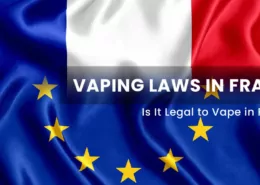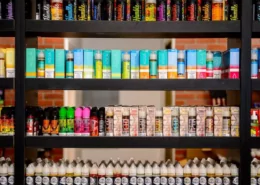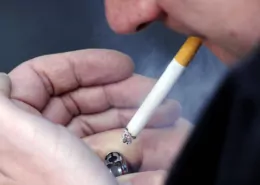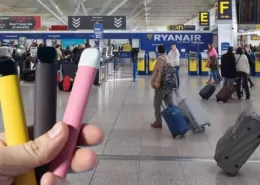Spain Proposes Tighter Disposable Vape Regulations
Spanish political coalition Sumar has introduced legislation to tighten regulations on disposable vaping devices and nicotine-free e-liquids. The non-binding proposal (PNL) aims to close loopholes allowing sales of largely unregulated products popular with youth.
Expanding Nicotine Definitions
Sumar’s PNL urges the government to revise Royal Decree 579/2017 governing tobacco and related goods. It calls for broadening legal definitions to cover devices “capable of releasing nicotine-free vapor.”
This change would subject zero-nicotine vape liquids to the same rules as nicotine-containing products. Manufacturers would need to register formulas, conduct toxicology studies, and meet other prerequisites for approval.
Current law only applies to nicotine-based vaping items. Disposables and e-liquids without nicotine face minimal oversight beyond general consumer product safety standards.
Youth-Oriented Design Ban
The proposal also seeks to prohibit designs appealing to minors. Kid-friendly packaging resembling candy, soda or cartoon characters would be banned on all e-cigarette hardware and e-liquid.
Sumar argues such youth-oriented imagery encourages experimentation and initiation among non-smoking teens. Similar marketing restrictions already apply to nicotine vaping products.
Addressing Regulatory Gaps
Current rules leave non-nicotine vapes in a “clear lack of regulation” according to Sumar. The European Union’s CLP chemical safety protocols technically apply. But observers say enforcement remains minimal without specific vaping laws.
Spain’s landmark Law 28/2005 on smoking fails to even mention nicotine-free e-cigarettes. It specifies only combustible tobacco as banned in smoke-free spaces.
Sumar’s PNL advocates updating Law 28/2005 to explicitly prohibit:
- Underage sales of nicotine-free vape liquids
- Public use of zero-nicotine e-cigarettes in places where smoking is forbidden
The measure defers to regional authorities to set implementation details. But it establishes a clear national policy equating all vapes with tobacco products in terms of access and usage.
Specialty Retail Licensing
Finally, the proposal creates a new licensing system for vape retailers separate from tobacco vendors. Both online and brick-and-mortar sellers would need to meet specific criteria, including:
- Vaping as the primary business purpose (>50% of sales)
- Strict underage access controls
- Mandatory device and battery recycling programs
- Rigorous online age verification systems
- Prohibitions on vending machine sales without ID checks
Proponents frame specialty licensing as a safeguard against uncontrolled proliferation through general retail. Limiting points of purchase makes monitoring and enforcement more feasible.
Ongoing Debate
The Sumar PNL reflects growing concern about youth vaping across Europe. Disposable e-cigarettes with bright colors and sweet flavors have proven especially popular among Spanish teens.
“Absence of specific regulation” enabled an influx of cheaply made imports from China and other countries. Unknown ingredients and inconsistent quality control raise potential health alarms.
Industry groups complain the restrictions go too far in limiting options for adult smokers who vape to quit. They argue flavor bans and purchase barriers may unintentionally steer people back to cigarettes.
But Sumar counters that disposable vapes represent an on-ramp to nicotine rather than an off-ramp from smoking. Lawmakers contend “licensing systems” strike the right balance between availability and supervision.
Uncertain Future
The non-binding PNL serves more as a policy statement than an enforceable mandate. It now heads to the Health Commission for further debate and potential amendments.
Spain’s governing coalition will ultimately determine which recommendations if any become law. But the proposal reveals a clear appetite among some legislators for aggressive action.
With youth vaping on the rise across Europe, calls for stricter regulation will likely only grow louder. The patchwork nature of policies between member states adds pressure for harmonized EU-wide standards.
How exactly those common rules take shape – whether mirroring Sumar’s plan or striking a different compromise – remains a subject of intense lobbying and political wrangling ahead.
But the spotlight has undoubtedly turned to disposable e-cigarettes as a driving force behind the resurgence of nicotine use among young Europeans.
- How to Get a Vape Business License in Canada (2025 Guide) - July 13, 2025
- Vaping Laws in South Dakota: Age, Tax & Public Use Guide in 2025 - July 13, 2025
- Is Vaping and Driving Illegal in South Carolina? (2025 Guide) - July 12, 2025








